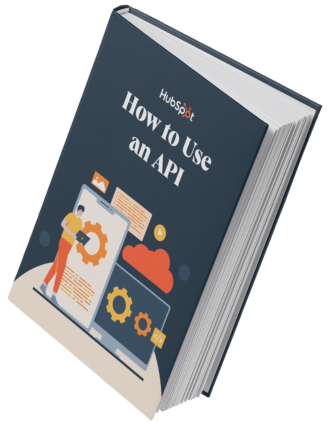The rise of the API economy means the ecommerce API market is highly saturated. It can be tricky to discern which ecommerce API design will provide the right solution for your website. We’ve rounded up 18 of the most helpful ecommerce APIs that you might be interested in implementing for your business.
What are ecommerce APIs?
You know that application programming interfaces, or APIs, are rules that allow data to get extracted from software. The data then can be used in another application for friction-free integration. An ecommerce API takes that definition a step further. Similarly, ecommerce APIs facilitate communication between applications on commerce platforms. Generally, ecommerce APIs are divided into subcategories. These include ecommerce platforms, payment, inventory, marketplace, and marketing.
Each of these subsections has a different role to play. Ecommerce platform APIs help businesses create their online shop (think WooCommerce or Shopify). Payment APIs simplify another essential step of the ecommerce process: the purchase of goods. Payment APIs add purchasing functionality to a website and can integrate with other APIs to provide customers with a smooth buying experience (think AfterPay or PayPal).
Up next are inventory APIs. These APIs assist online businesses by simplifying their operations and tasks such as buying new products, receiving orders, stock updates, and even warehousing (think Sellbrite or Fulfil.IO). And lastly, marketing APIs help your ecommerce site reach customers wherever they are — on social media or through email, for instance (think HubSpot).
What is an ecommerce API example?
Whether you know it or not, you use ecommerce APIs in your everyday life. Say you’re purchasing a blouse from a small business whose website is hosted through HubSpot's Content Hub. When you check out, you might notice that it uses a Shopify plugin where you purchase the product. That’s an ecommerce API example at work — and goes to show why they’re so valuable.
Another ecommerce API example is when you purchase something on Etsy, and you have the option to purchase it using PayPal. An ecommerce API integration makes that possible. With these examples of successful ecommerce APIs, you begin to understand precisely why they’re useful — because they remove friction in the purchasing process. The easier it is for customers to buy from your business, the more likely they are to make a purchase. A 2020 study conducted by the National Retail Federation indicated that 97% of consumers have backed out of buying something simply because the service was inconvenient.
Why are ecommerce APIs necessary?
There’s a reason the use of ecommerce APIs is so widespread. Therefore, these integrations significantly simplify the day-to-day tasks of running a business and are essential for small and large companies alike.
An ecommerce API saves developers time and money as they won’t need to create something from scratch and can instead use a pre-existing integration. The quirks of these APIs were ironed out by the teams that created them, which makes them reliable.
Ecommerce APIs are also essential because they give businesses the ability to quickly adjust to what their customers need without investing a significant amount of time or resources in entirely reworking the website.
Businesses also benefit from the use of an ecommerce API because it helps a business manage, automate, and coordinate its ecommerce operations. Less time spent on these facets of running a business means that the company can spend more time creating a viable customer experience.
18 Best Ecommerce APIs
Simply put, the best ecommerce API for your business is the one that checks all the boxes of what processes your company needs to complete. Of course, ecommerce API design is also important — a shoddily-designed integration will create more work than it will solutions.
Because there are many options, figuring out the best ecommerce API for your online business can be overwhelming. We’ve simplified the process of finding the best ecommerce API by rounding up some of our favorites. And rest assured, all of our examples feature solid ecommerce API design.
1. HubSpot Ecommerce Bridge
HubSpot’s Ecommerce Bridge API provides integrators with the ability to sync their ecommerce data directly into HubSpot. This integration also facilitates the creation of a set of out-of-box e-commerce features for HubSpot users. Some of these include workflows (to welcome new customers and help reduce the number of abandoned carts), contact and deal property mapping (useful for customer segmentation), and even an ecommerce reporting dashboard.
What we like: With the HubSpot Ecommerce Bridge, businesses will spend less time transferring data onto the platform. In addition, an easy, automatic transfer of data eliminates human error and maintains data integrity.
2. Shopify
Shopify’s ecommerce API garnered a reputation for the platform’s ease of use and the tool’s variety of capabilities. It features an administrator API, storefront API, and more. It supports XML and JSON and can work with several HTTP requests, including POST, GET, PUT, and DELETE.
What we like: This ecommerce API scores points for how easy it is to manage and its excellent security features. In addition, the Shopify Storefront API is free to use. (You’ll need to subscribe for some of the additional features.)
3. Stripe
Stripe is an example of a more niche ecommerce integration as it falls under the payment API subcategory. Stripe’s Payment Methods API enables digital retailers to accept several payment methods through one API.
What we like: If you read reviews of Stripe’s API, you’ll quickly understand how prized this integration is. Users love how intuitive it is and how customers recognize the Stripe name on their site and know it’s safe to use.
4. BigCommerce
BigCommerce’s API provides the ability to retrieve a shop’s product catalog information and order data. It includes features to recover abandoned carts, assist with inventory control and management, and even help with bulk ordering.
What we like: This ecommerce API includes a variety of features aimed at simplifying the process of running an online store. Whether you’re looking to understand inventory better or want to ease the stress of ordering products, BigCommerce can assist.
5. Magento
Similar to BigCommerce, Magento’s ecommerce API features a wide array of capabilities designed to streamline the process of owning an online business. This API supports XML and JSON with four HTTP methods: GET, PUT, POST, and DELETE. It allows stores to build their ecommerce sites and ultimately customize everything.
What we like: Magento’s REST endpoints are especially helpful for those looking to update tier prices, base prices, or cost values expediently.
6. Paypal
It’s impossible to discuss the best ecommerce APIs without PayPal being mentioned. Paypal’s REST ecommerce API does more than collect payment; it also assists with orders, subscriptions, disputes, and invoicing. This comprehensive integration is suitable for new and established businesses alike.
What we like:Paypal’s ecommerce API comes with a helpful list of features that streamline running an online business. These include a billing portal, check fraud detection, and even barcode scanning. It’s an all-in-one solution for companies looking to get paid reliably.
7. WooCommerce
Over two million active users trust WooCommerce, and with good reason — it is known for being one of the most secure ecommerce platforms. This open-source API plugs into WordPress to create powerful online stores. It’s also compatible with Amazon, Shopify, and Magento.
What we like: If you’re looking to transform your WordPress site into a fully-fledged ecommerce platform, WooCommerce lets you do so. Another benefit of using WooCommerce is that changing your subscription type is easy. This product is also helpful if you’re looking to quickly introduce products to your shop, retrieve item details, filter through orders, and reserve inventory.
8. Etsy
Etsy is a marketplace-style ecommerce platform where small businesses and artisans can sell their creations. The company’s API features a RESTful interface and JSON formatted responses. Those looking to retrieve their Etsy shop’s listings, display the reviews they received on Etsy on their website and manage the transaction of data may be interested in this integration. Developers can also build third-party applications by harnessing the power of the data provided by Etsy’s platform.
What we like: Etsy is a household name, so your website — and business — will get a credibility boost by working with the platform. This ecommerce API also scores points for how multifaceted its capabilities are.
9. eBay
Did you know that eBay offers RESTful and Traditional APIs? Its RESTful ecommerce API supports several formats, including HTML, JSON, XML, and plain text. It also uses less bandwidth. These APIs provide access to the main functions for searching, selling, buying, and other commerce-related activities. Here’s a fun fact: eBay doesn’t just have one ecommerce API — it has plenty.
What we like: Regardless of what functionality you’re seeking an API for, eBay probably has it. This suite of integrations is also one of the best ecommerce API options because it supports various formats.
10. Kite
Kite’s technology can be embedded in any website (or the mobile application). Its ecommerce API helps businesses efficiently print and then ship products anywhere. Because this API facilitates printing the product and sending it, this integration is ideal for those experimenting with new items or just starting.
What we like: Not only is Kite’s API beneficial for those looking to open their own small ecommerce business, the integration’s versatility and ability to be embedded anywhere scores points.
11. Axesso - Walmart
The Walmart API can be beneficial for several reasons. For one, it can help your business increase profits and customers. It also provides sellers with the resources to manage items, promotions, prices, inventory, orders, and reports. Furthermore, the integration is capable of accessing the product data that is publicly listed. From there, you can extract data points as you need.
What we like: If you’re selling on Walmart and want an easy way to compile data or stay on track with your inventory, this ecommerce API is a must use as it significantly streamlines the process.
12. Amazon
Unsurprisingly, global ecommerce leader Amazon also has a collection of integrations. These provide developers with access to the data and functionality of Amazon through its backend services. Implementing these APIs can provide your customers with an exceptional experience.
What we like: Amazon’s APIs are known for being reliable and easy to use. Whether you’re looking for an API that will provide you with real-time Amazon product prices, updated product data, or review details, Amazon’s integrations will help.
13. Adyen Checkout
Every online shop needs a reliable, successful way to collect customers’ payments. The Adyen Checkout API can fit that gap and provides a flexible, adaptable way to authorize and initiate online payments.
What we like: With Adyen’s API simplifies the experience of accepting many payment methods significantly, which ensures a seamless experience for guests.
14. API2Cart
API2Cart is a unified interface designed to create ecommerce integration with over 40 shopping platforms. If you use both WooCommerce and Shopify, for example, API2Cart can streamline the process of those integrations working together.
What we like: API2Cart is most beneficial for online businesses that use multiple checkout APIs and are looking for an easy, navigable way to manage them.
15. Google Content API for Shopping
The Google Content API helps you manage your shopping items programmatically. Suppose you have an account with the Google Merchant Center. In that case, this API allows you to control your inventory, upload products, control Google Merchant Center accounts, link products on Google Ads, and even navigate orders and returns.
What we like: This API has a myriad of different functions. If you’re seeking a way to simplify the processes of owning an online store, Google Content API for shopping could provide a solution.
16. Big Cartel
With the Big Cartel ecommerce API, programmers can access the online store platform. Developers can access artists, discounts, orders, products, and more using the API. Creating a custom online store just became easier.
What we like: If you’re an artist or creator looking to get your small business started, the Big Cartel API might be the right fit. This RESTful integration makes setup a breeze and integrates with other platforms.
17. OpenCart
OpenCart has several APIs that serve different purposes for online businesses. They offer a shopping cart API so the checkout process is simple and easy to navigate. OpenCart also has an administrative API that can help you organize your ecommerce business warehouse management systems and inventory.
What we like: Both of OpenCart’s APIs are RESTful. In addition, its offerings are both customer-facing (shopping cart API) and internal (administrative API). With OpenCart’s products, you can ensure that your processes are succinct and manageable for you and your buyers.
18. Volusion
If you consider yourself an entrepreneur or small business owner, Volusion has an ecommerce API that you should know about. Think of Volusion as a shopping cart. It’s trusted by over 250,000 online merchants across the globe. It offers supply chain management software, mobile commerce apps, order fulfillment solutions, and beyond.
What we like: This API is known for its reliability and is capable of integrating with other platforms for the most streamlined ecommerce process. The company was founded in 1999 and boasts several decades of experience aiding business owners by bringing their dream ecommerce sites to life.
Ecommerce APIs bring your business to the next level.
Owning an ecommerce shop is complex, but ecommerce APIs can help you elevate your business to the next level while simplifying the process. Whether your ecommerce business is established or just starting, these integrations will successfully allow you to reach new heights in your business owner journey.





![How to get a YouTube API key [tutorial + examples]](https://53.fs1.hubspotusercontent-na1.net/hubfs/53/%5BUse%20(1)-4.webp)
.webp)






